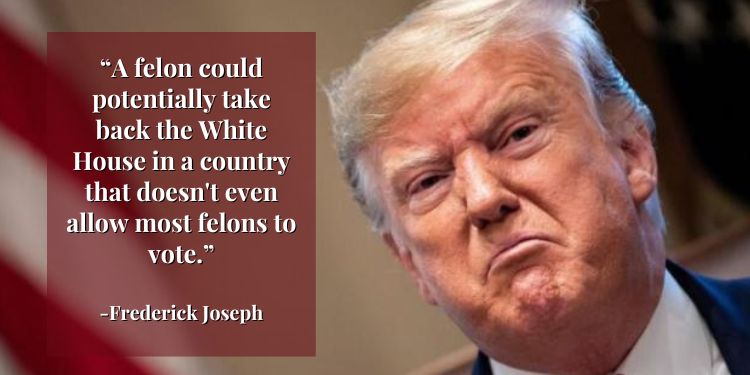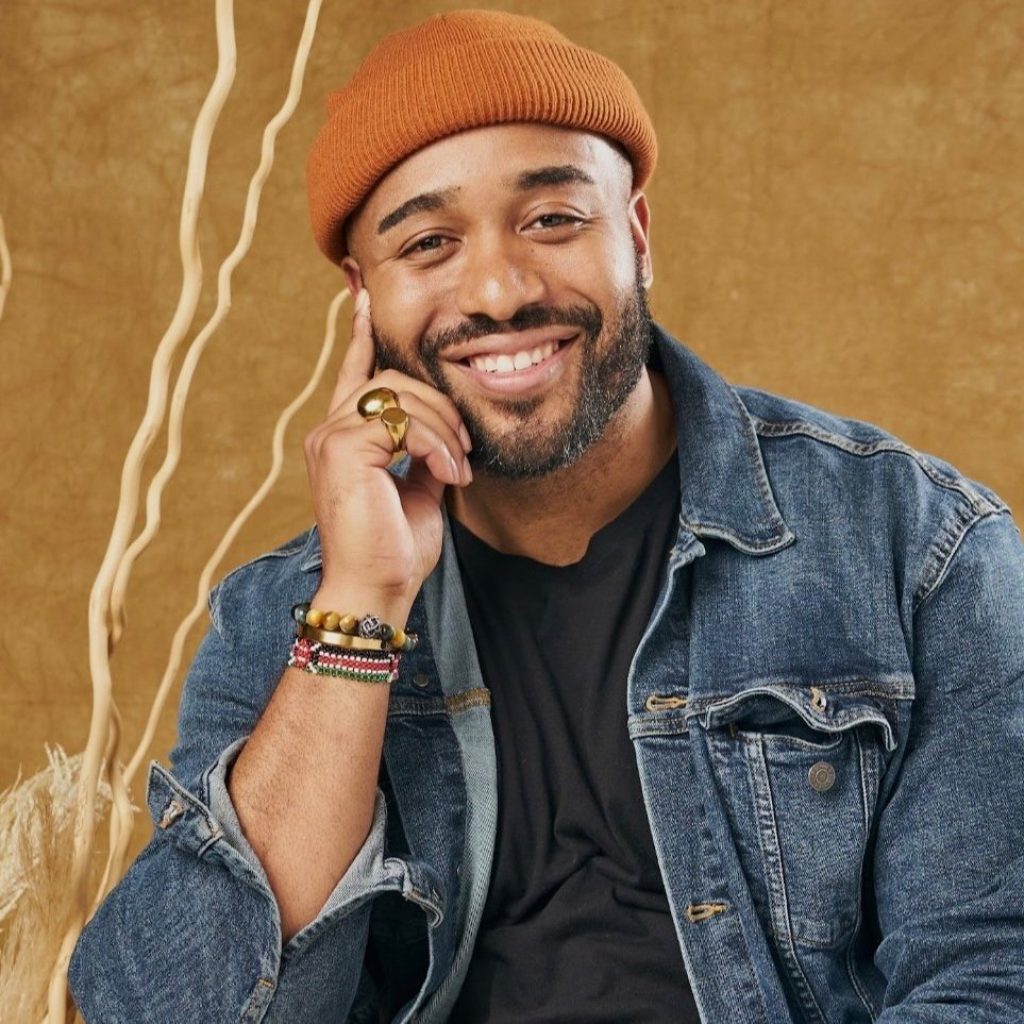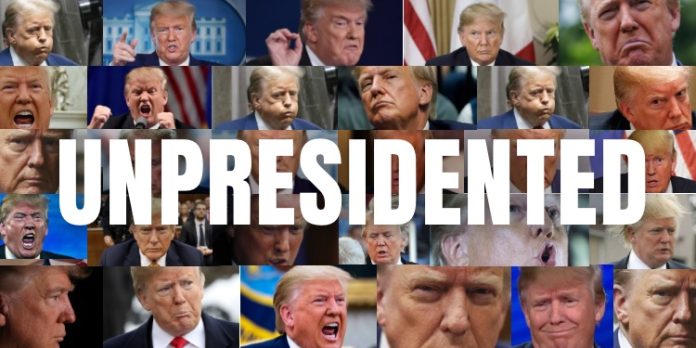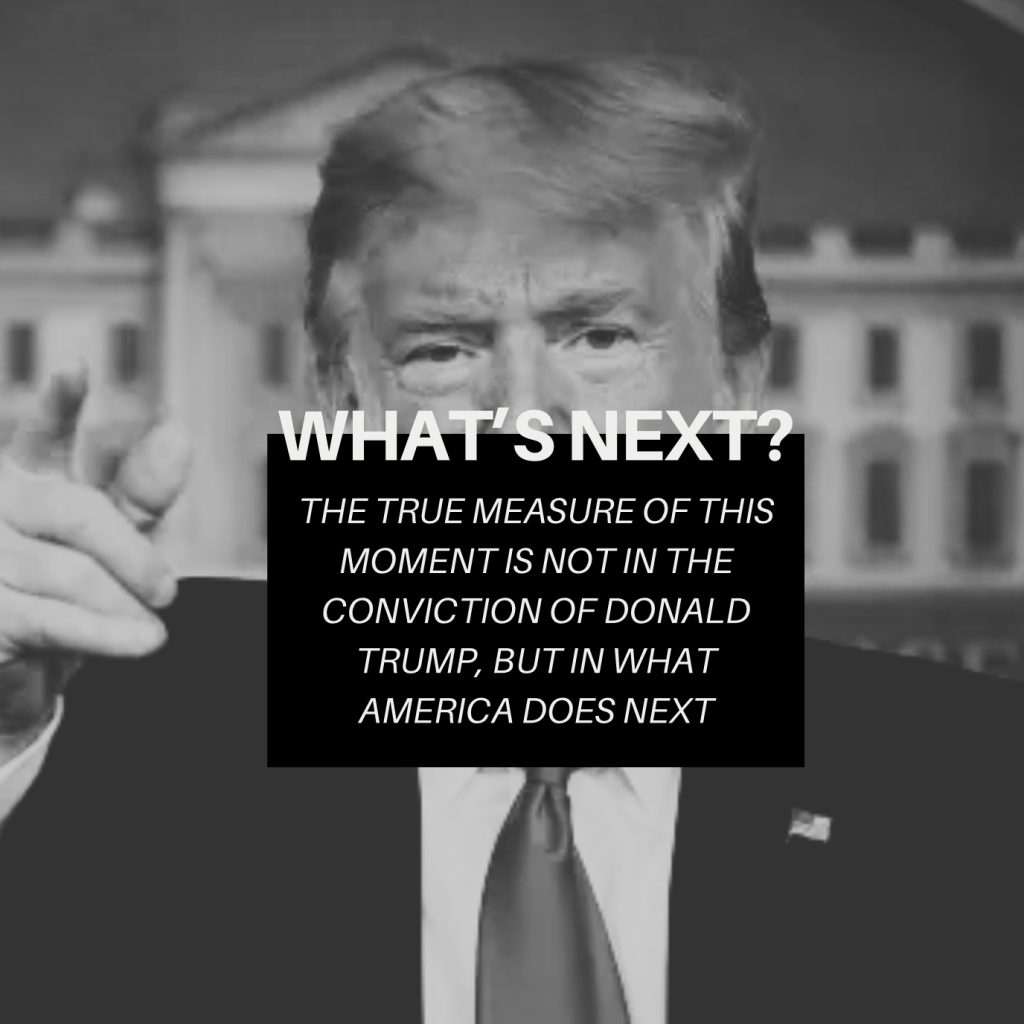For the first time in history, Former president Donald Trump founded guilty of all 34 felony counts of fraud, but will it matter?
Opinion by Frederick Joseph — In this, the land that prides itself on dreams, I have come to know intimately the duality of existence. To be a Black person in America is to live in a world where there are always two of everything. Two education systems, two corporate worlds, two housing markets, two legal systems—each pair reflecting the chasm that divides white privilege from the struggle of everyone else. This duality and relentless dichotomy have shaped my understanding of a society that touts itself as a realm of opportunity but is actually a fortress of exclusion.
“A felon could potentially take back the White House in a country that doesn’t even allow most felons to vote.”
To understand the full measure of this nation’s duplicity, one must look beyond the veneer of justice served. Trump’s new identity as a felon only adds another layer to an already grotesque reality. It is not merely that he is a felon; it is that he was already a man marked by his attempt to overthrow the government on January 6th, a date which now stands as a testament to the lengths to which white privilege and power can extend.
Imagine, if you will, a Black man orchestrating such an insurrection. Imagine the swift and brutal justice that would be doled out, the cries for retribution that would echo through the halls of power. Yet, here we have a former president who, despite his blatant attempt to dismantle the democratic process, is not only free but is once again seeking the highest office in America—as a convicted felon. This is the extent of white privilege: the ability to defy the very foundations of the republic and emerge unscathed, to be not only forgiven but to be celebrated by a significant portion of the populace.
My hope, tenuous as it is, clings to the belief that this conviction will matter—that it might herald a shift in the conscience of a nation that ignores its own truths. Yet, as I watched Trump walk out of court to address the press with his characteristic bravado as if everything would be fine, a seething rage welled within me. It was a rage born not only from the sight of his freedom but from the painful awareness of the countless Black and Brown souls who had been disenfranchised, shackled, and discarded by a system designed to ensnare them for far less.

The man was convicted of 34 felony counts and walked out unshackled, unbowed, and likely boarded a private jet after giving his side of things to hundreds of news outlets. The luxury of his circumstance carrying him far from the grasp of accountability. As I write these words, he is perhaps soaring above the clouds, insulated by his wealth and privilege, a grotesque emblem of a system that bends and breaks for those it was designed to protect. This is the heart of our nation’s duplicity, where justice is not blind but selectively sighted, where the powerful glide above the fray while the marginalized are left to grapple with the weight of their oppression.
This rage is the offspring of centuries of injustice, the bitter fruit of a tree nourished by the blood and sweat of those condemned to lesser fates for far lesser mistakes. I think of the men and women ensnared in the trappings of a society that criminalizes their very existence. And then there is Trump, striding confidently out of that courtroom, unencumbered by the weight of his crimes, his privileges insulating him from the consequences that would crush others. His freedom, his ability to speak, and his pursuit of power reflect the enduring power of white privilege.
In this moment, my hope is both a flickering candle and a roaring fire. It is a candle, fragile and easily extinguished, representing the small, persistent belief that change is possible. It is a fire, fierce and consuming, driven by the rage that demands justice, that refuses to accept the status quo.
Democrats have a right to celebrate, and they should. Donald Trump’s conviction on 34 felony counts is a momentous occasion, a rare instance where the system momentarily bows to justice, acknowledging what we have always known—that his actions are not just indefensible but criminal. Yet, this celebration must be tempered with the understanding that it is but a fleeting victory in a long, arduous struggle. Like me, Democrats must learn to be both candle and fire.
Democrats must hold onto the fragile hope, the belief that this conviction might indeed signify a turning point, a crack in the fortress of exclusion that might, just might, let in the light of true justice. As such, the fire is the necessary rage and relentless demand for change Dems must have to actually have a chance at winning.
To think that this conviction will change Trump’s chances in the political arena is to fundamentally underestimate not only him but the very essence of white power and privilege that has enabled his rise. Trump’s conviction, rather than serving as a deterrent, is likely to embolden him and his supporters, reinforcing their narrative of persecution and martyrdom. It is exactly what he and his campaign want Democrats to do—underestimate the depth of depravity in America.
In underestimating Trump, people underestimate the American psyche that allowed him to ascend to the presidency in the first place.
Trump’s base is not merely loyal; it is fervent, driven by a sense of loss and resentment that he has masterfully manipulated. His conviction will be spun into a tale of defiance, a battle against a corrupt system—a system that, in truth, remains all too willing to bend to his will.
The true measure of this moment is not in the conviction of Donald Trump, but in what America does next.

Frederick is a two-time New York Times bestselling author of The Black Friend (2020) and Patriarchy Blues (2022), Better Than We Found It (2022) and Black Panther: Wakanda Forever – The Courage to Dream (2022). He was recognized for the International Literacy Association’s 2021 Children’s & Young Adults’ Book Award, is a 2019 Forbes 30 Under 30 list-maker for marketing and advertising, an activist, philanthropist, and poet.
Frederick was also honored with the 2023 Malcolm X and Dr. Betty Shabazz Vanguard Award, the 2018 Comic-Con Humanitarian of the Year award and is a member of the 2018 “The Root 100″ list of Most Influential African Americans. Lean more about Frederick here.







